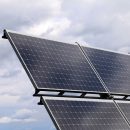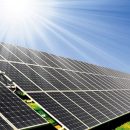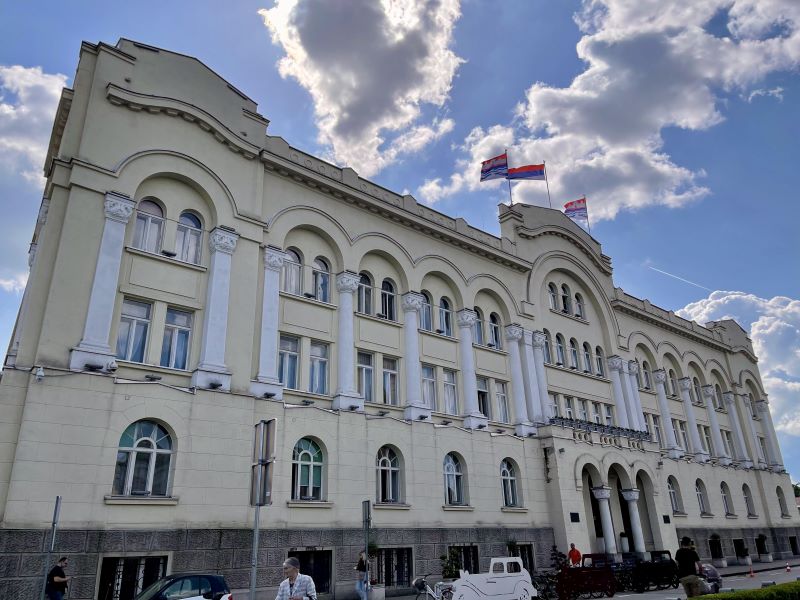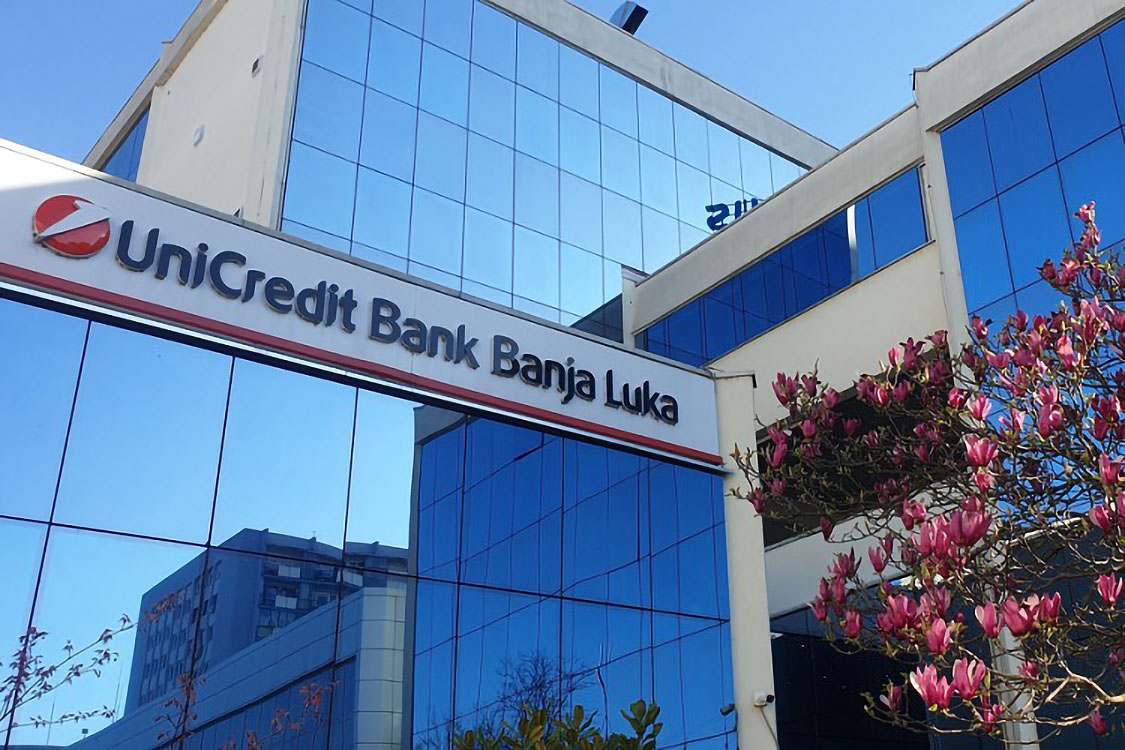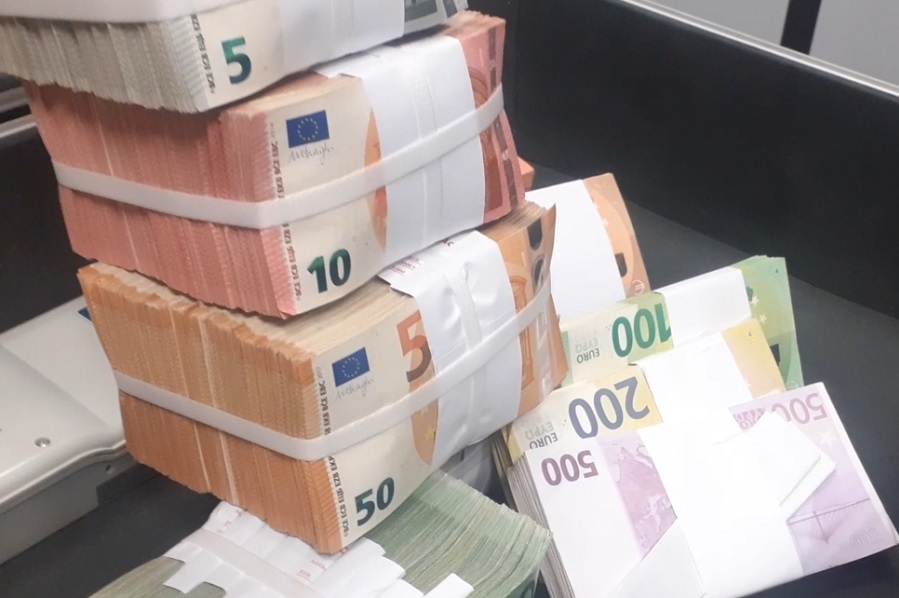In BiH, even the sun does not treat everyone equally
26.01.2022. / 14:20
SARAJEVO – Delaying the adoption of the law on renewable sources is a joint criminal project, according to economist Damir Miljević from the Regional Center for Sustainable Energy Transition (RESET).

FOTO: Pixabay
“The fact is that under the current laws on renewable energy sources in both entities there have been a number of abuses, preferences of individual investors, illegalities… The development of small HPPs, solar and wind power plants in BiH was carried out to the detriment of citizens because we give these investors extremely large subsidies for production that is in itself commercially viable, and we give them from money given by citizens on electricity bills as compensation for development of renewable sources. This practice should have stopped in 2020, in September 2019, drafts of new laws were ready in both entities, but the whole of 2020, and even 2021, passes, and these new laws have not been adopted” says Miljević and emphasizes that they will abolish tariffs guaranteeing redemption for the next 12 years in the FBiH and 15 in the RS and notes that in the Republika Srpska the draft law is under public debate, and in the FBiH – not even in sight.
It is obvious that there is a link between the government and investors and that the government makes it in favour of investors to drag out the passing of the law, because if you have two actors who need to take into account the public interest and act as if they are in the service of private interests, and do so for years, it is nothing but a joint criminal project, Miljević says. He explains that the new law should enable citizens and the economy to produce their own electricity and give the surplus to the system as a loan for the next period in which they may not have electricity.
“It should also enable the formation of energy communities or cooperatives in which more citizens and businesses can work together on their territory and it should enable commercial investors in renewable energy sources to be given concessions in a transparent manner on the basis of open auctions where they would offer the lowest redemption price of electricity or some other benefits. This is how most of the licensing is based on self-initiated offers, and we know what that means in BiH”, says Miljević.
“The draft law on renewable energy sources in FBiH was written with the help of GIZ and in May 2020 the Energy Community gave a positive opinion and a few suggestions”, says Sanela Klarić, an expert on green transition and member of the FBiH Parliament, and emphasises that it still has not come before the deputies.
“I have repeatedly asked the Minister of Energy to put the law into force, but I have not received an answer”, says Klarić and emphasises that, along with the laws on electricity, energy efficiency and gas, this is just one of the laws in the energy sector written with the help of donors such as USAID and GIZ, whose adoption is unjustifiably delayed.
This law is important because it would enable citizens to produce electricity for themselves and to transfer surpluses to the grid, gives people the opportunity to join energy cooperatives and thus, especially local communities, be involved in investing in such systems and for it to not be reserved only for privileged investors who have money, but it should be open to all citizens or citizens’ associations, and it should solve transparency in granting permits and abolish guaranteed purchase prices from existing owners of solar power plants, Klarić explains.
“As hundreds of solar power plants and several privately-owned wind farms have been built in BiH so far, and as, according to available information, projects for the production of one gigawatt of solar and wind electricity are currently being built in BiH”, Miljević warns that the law should be put into force as soon as possible because private investors occupy the best locations.
As building permits are now granted on the basis of self-initiated bids, private investors will occupy the best locations, places where the sun shines best and the wind blows best, and as they are not obliged to hand over that electricity to BiH – electricity can be exported and they will Decarbonise the EU or some other countries, and we are left with dirty energy. That is why an auction must be introduced for the award of permits for the construction of plants, in which those who offer the lowest price of electricity for purchase in BiH will have priority, Miljević explains and emphasises that any delay goes in favour of private investors.
This claim is supported by unofficial information from the Ministry of Energy in the RS Government that all attractive locations are already occupied – they were occupied by private investors, and that there are cases when larger plants were reported as several smaller to receive incentives for production and/or become qualified, which gives them the right to deliver their electricity to power companies in BiH at guaranteed prices.
In 2005, Bosnia and Herzegovina signed an Energy Community Treaty with the European Union (EU) and seven other countries: Albania, Bulgaria, Croatia, Northern Macedonia, Montenegro, Romania and Serbia. The agreement commits it to implementing the EU Directive on the Use of Energy from Renewable Sources. The goal was to increase foreign and domestic investment in renewables and clean energy production and to provide new jobs and protect the environment. In order to implement the obligations, the entities in BiH have committed that by 2020, 40 per cent of the planned electricity consumption will be from renewable sources, and they have decided to achieve this with benefits and incentives for producers. Thus, FBiH and RS began to sign contracts with mostly private companies that produce electricity from water, wind and sun, pledging to buy all their electricity at guaranteed prices that will not change, regardless of market changes, for 12 years in FBiH and 15 years in RS. In addition, these producers receive a monetary incentive in the amount that depends on the amount of electricity produced, and with incentives and guaranteed purchase prices, that electricity, according to information from power companies in BiH, has become more expensive than electricity produced by power companies. At the same time, the obligations of producers of electricity from renewable sources to the state are from 1 to 15 per cent of total revenues from the sale of electricity and this is decided at discretion in each individual contract.
Money for incentives for production from renewable sources is provided by all electricity users in BiH – according to the decisions of the entity governments in BiH, citizens pay a fee for renewable sources with the electricity bill and thus accumulate tens of millions of KM annually paid by entity operators for renewable sources to electricity producers from small hydropower, solar and wind powerplants. According to the data collected by the journalists of the Center for Investigative Reporting (CIN) from the entity operators for renewable energy sources, at least 207 million KM were paid to the owners of the plant from 2015 to 2020. This amount is higher, given that the institutions in the FBiH do not have data on the paid incentives for 2016 and 2017 in their records.
For 2021, the required amount of compensation for stimulating production from renewable energy sources and efficient cogeneration in the FBiH, according to the decision of the FBiH Government, is 27.2 million KM.
“In the past few years, technology has become much cheaper and not as expensive as before, the investment returns in maybe three years, so the new law should remove the guaranteed purchase prices for producers, because that is how private investors earn enormously. These are suggestions from the EU as well – they also had those tariffs, but a long time ago, but there are individuals here who like it “, says Klarić.
One of the former directors of Elektroprivreda BiH Amer Jerlagić with his private company is building two solar power plants in the vicinity of Sarajevo.
“This smaller one is 23 kilowatts and it should be put into trial operation by March 2022, the corona pandemic slowed us down a bit, and the larger one is 150 kW and we are just starting to build it because it took time to get all the necessary permits. With a smaller project, we entered the incentive quotas, the return on investment is reasonable and that is the reason why we started building a photovoltaic power plant”, Jerlagić told Interview.ba
GP Tomig Grude has the largest production of solar power among private individuals with 25 solar power plants with 150 kilowatts of installed power – on their website it says that they have 8,263 megawatts installed, to produce 4,508 megawatts per year, reducing CO2 production by an average of 8,268 tons per year. Among those who have a permit for the production of electricity from the sun in the FBiH alone, there are about 50 private companies with more than 100 kW of installed power – the others have less. According to available estimates – the construction of a solar power plant of about 20 kilowatts of installed power could cost up to 40,000 KM, and their average lifespan is more than 25 years. The cost-effectiveness of construction is also evidenced by the fact that the price of solar panels has fallen in the past few years, but the price of electricity on the market has increased and will continue to rise, especially those from the sun and wind.
The entity operators for renewable sources and efficient cogeneration are most responsible for the legal processes in this area – for records, purchase from private producers and delivery of electricity from renewable sources to electricity companies in BiH. In FBiH alone, this Operator collects between 50 and 70 million KM a year, but in recent years it has been burdened with a number of problems such as suspicions of illegal operations of the administration, which did not allow an audit and did not want to resign after the shift. However, in mid-2021, after the arrival of the new administration, the Office for Auditing the Work of Institutions in FBiH made an audit for 2019 and 2020 and found a number of irregularities: no information on quotas on the Operator’s website, no up-to-date quotas for each type there is no updated list of qualified producers/investors who have received the status of privileged / potentially privileged (ie those who sell to power companies), which violates the principle of transparency and is not in accordance with the Law on Renewable Energy Sources and Efficient Cogeneration, and does not have a single register of projects, not all registration decisions were presented, some projects were not even entered in the register, which was not published on the Operator’s website.
Occupancy of dynamic quotas for solar power plants on 31 December 2020 was above the scope set by the FBiH Action Plan for the Use of Renewable Energy Sources because the allocation of dynamic quotas was not done in the manner determined by the Law on Renewable Energy Sources and Efficient Cogeneration. No records were kept on the allocation of dynamic quotas, nor was their availability checked before the status of potentially privileged and privileged producers was granted. Requests for acquiring the status of privileged and potentially privileged bidders were not resolved in the order of receipt, procedures were not resolved within the prescribed deadlines, nor were written invitations submitted to applicants to correct deficiencies in requests, which was an obligation under the Renewable Energy Sources Act, and efficient cogeneration and internal rules. Also, the status of a privileged producer was granted and contracts for the purchase of electricity from renewable sources were concluded without previously submitted documentation prescribed by the Law on the Use of Renewable Energy Sources and Efficient Cogeneration and the Decree on Encouraging Electricity Production from Renewable Energy Sources and Efficient Cogeneration.
In mid-December 2021, this Operator offered for public discussion the Draft Rulebook on the methodology for allocating balancing costs for privileged and qualified producers, as well as the share to be paid from the fees collected for incentives, which was met with many remarks in the professional and expert community.
It was made with a delay, so it was done quickly, without any estimates, irresponsibly, it opened new costs for electric power companies, i.e. citizens, and new incomes for small producers. It is completely unacceptable, repeats a couple of participants in the debate, noting that all relevant in this process should reject it.
It’s so bad it doesn’t make sense to fix it, says one of them.
The FBiH Government’s Ministry of Energy, Industry and Mining (FMERI) says a new law on renewable energy is under preparation.
A working group at the state level, with the assistance of GIZ, made a template and draft at the end of 2019, but the Covid pandemic and further complications of requirements from the EC and the Sofia Declaration opened the space for updating the law. The Minister formed a working group starting in 2021 and the first draft was made, which we sent to the electric power companies and FERK for comments. We have had other laws in the field of energy that are the umbrella of both electricity and energy and they must be adopted before the law on renewable sources. We now have comments from Elektroprivreda and FERK and I expect that this working version will be in the FBiH government at the end of January, they say in the Energy Sector in the Ministry and emphasise that they are doing everything with USAID technical assistance.
The most difficult thing is to reconcile all the requirements that the law must resolve – existing agreements that must remain in force, the introduction of new obligations, the establishment of democratisation of electricity production within which every citizen can be a producer and go to the distribution network, but also harmonise shared competencies between state and entity, and harmonise the law with other laws, but we hope that we have succeeded, they explain in the Energy Sector. They say that it is impossible to take over the law from some of the neighbouring countries (Croatia has had this law for a long time, Serbia received it earlier this year) because it is a living matter and the situation is changing rapidly at the EU level.
Entity laws will not be harmonised either, but European directives will be respected and we think that the law in FBiH will be much more democratic, say the Ministry and announce that the new law for large solar and wind plants will be auctioned and small producers get a chance to sell the surplus.
As a remander, the growth of electricity production from the sun and wind is important, among other things, because BiH signed the Sofia Declaration pledging to work to reduce pollution and contribute to the plan to make Europe a climate-neutral continent by 2050. This process is also called the green transition, which is characterized by decarbonization, decentralisation, digitalization and decarbonization, which, among other things, means closing mines and shutting down thermal power plants. In some countries that are working more seriously on this process, miners are, for example, engaged in the production of solar panels because it is a new industry and creates a significant number of jobs, but the production of solar panels or windmills and mining is not within the Ministry’s competence.
By introducing the law and opening the possibility for citizens and small and medium enterprises to produce electricity, they will open factories of solar panels and other equipment, but that is a market issue, not for the Ministry, they say in the FMERI Energy Sector and predict that there won’t be an increase in prices of solar panels, but will be an increase of electricity prices for those who want to buy on the market, which will open space for companies to invest in solar panels and reduce electricity costs, and that everything speaks of the great interest of companies to prepare for the installation of solar panels, which they see as company development and savings.
A businessman from Tuzla Canton, Mujo Hasić, is engaged in plastic processing and exports to the EU. At the end of 2021, he initiated the procedure for obtaining a licence for the production of electricity from the sun because he fears that the EU will soon introduce special taxes due to electricity from dirty sources that it now uses in production, which would make its products more expensive and uncompetitive on the EU market, which would jeopardise the survival of his company.
I would produce electricity only for my own needs, I know that there are other companies that do that, but below their consumption capacities so that they have to buy something from the electric power companies – when they produce the allowed quantity, their production is automatically shut down, the surplus can’t be given to others even for free, explains Hasić, who is now a member of the FBiH Parliament dissatisfied with the delay in adopting this law. interview.ba
Tagovi: solarna energijasunce
Povezane vijesti
Komentari
Molimo Vas da pročitate sledeća pravila pre komentarisanja:
Komentari koji sadrže uvrede, nepristojan govor, prijetnje, rasističke ili šovinističke poruke neće biti objavljeni. Nije dozvoljeno lažno predstavljanje, ostavljanje lažnih podataka u poljima za slanje komentara. Molimo Vas da se u pisanju komentara pridržavate pravopisnih pravila. Komentare pisane isključivo velikim slovima nećemo objavljivati. Zadržavamo pravo izbora i skraćivanja komentara koji će biti objavljeni. Mišljenja sadržana u komentarima ne predstavljaju stavove poslovnog portala CAPITAL.ba. Komentare koji se odnose na uređivačku politiku možete poslati na adresu [email protected]

